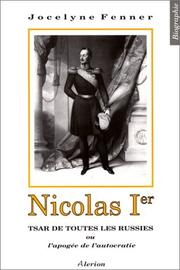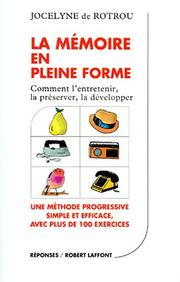| Listing 1 - 10 of 44 | << page >> |
Sort by
|
Book
ISBN: 9782701015934 2701015936 Year: 2012 Publisher: Paris: Beauchesne,
Abstract | Keywords | Export | Availability | Bookmark
 Loading...
Loading...Choose an application
- Reference Manager
- EndNote
- RefWorks (Direct export to RefWorks)
Ce commentaire intégral des Conjectures de Nicolas de Cues manifeste toute la fécondité de l'oeuvre dans sa complexité. Il élucide l'art général des conjectures, en explore et approfondit les sources doctrinales (en particulier lulliennes) et scientifiques : optiques, mathématiques, biologiques et médicales... Il montre ainsi que la théorie cusaine de la connaissance constitue une hénologie des points de vue et met en évidence l'articulation du rapport entre la vérité, objet de toute recherche connaissante, et l'altérité, condition de tout être fini, et notamment de l'homme. La vérité dans l'altérité se révèle alors comme condition de possibilité de tout ce qui est à partir de l'Un - ce qui constitue l'ordre de l'être - et comme condition de possibilité de toute pensée. Il s'agit, dès lors, de saisir la singularité de l'approche cusaine de la réflexion réciproque entre l'ordre de la pensée et l'ordre de l'être. Après avoir analysé le concept central de conjecture, entendu non comme une simple supposition, mais bien comme une connaissance inadéquate du vrai, la première partie déploie les principes de la nouvelle méthode, fondée sur l'analogie fondamentale entre mens humaine et mens divine. La découverte de ces principes nécessite l'exposition d'une théorie du nombre articulée à celle, d'inspiration proclusienne, des quatre unités (divine, intellectuelle, rationnelle et sensible). Cette première partie conduit à la mise en place de figures manuductrices, paradigmatiques pour notre connaissance. La seconde partie du commentaire explicite les exemples d'application de l'ars coniecturalis donnés par le Cusain en mathématiques, en philosophie naturelle et en anthropologie. Le lecteur découvrira ici comment les Conjectures engagent une philosophie de l'esprit et une philosophie critique, fondamentalement liées à une pensée de l'hétéronomie.
Nicholas of Cusa --- Knowledge, Theory of. --- Prediction (Logic) --- Théorie de la connaissance --- Prédiction (Logique) --- Early works to 1800 --- Ouvrages avant 1800 --- Nicholas, --- Knowledge, Theory of --- Théorie de la connaissance --- Prédiction (Logique) --- Nicholas, - of Cusa, Cardinal, - 1401-1464 - De coniecturis
Book
ISBN: 9783110441345 9783110435597 9783110433364 3110441349 3110435594 3110433362 Year: 2015 Volume: 31 Publisher: Berlin Boston
Abstract | Keywords | Export | Availability | Bookmark
 Loading...
Loading...Choose an application
- Reference Manager
- EndNote
- RefWorks (Direct export to RefWorks)
In Paradigm and Paradox, Dirk Geeraerts formulated many of the basic tenets that were to form what Cognitive Linguistics is today. Change of Paradigms –New Paradoxes links back to this seminal work, exploring which of the original theories and ideas still stand strong, which new questions have arisen and which ensuing new paradoxes need to be addressed. It thus reveals how Cognitive Linguistics has developed and diversified over the past decades.
Psycholinguistics --- Cognitive grammar. --- Knowledge, Theory of. --- Kognitive Linguistik. --- Language and languages. --- Foreign languages --- Languages --- Anthropology --- Communication --- Ethnology --- Information theory --- Meaning (Psychology) --- Philology --- Linguistics
Book
ISBN: 9782895182696 2895182698 Year: 2007 Publisher: Québec: Nota bene,
Abstract | Keywords | Export | Availability | Bookmark
 Loading...
Loading...Choose an application
- Reference Manager
- EndNote
- RefWorks (Direct export to RefWorks)
French language --- Stilistics --- Editing --- Copy editing --- Révision de textes. --- Édition. --- Copy editing. --- Editing. --- Éditeur. --- Français (Langue) --- Norme d'évaluation. --- Pratique professionnelle. --- Stylistique. --- Traduction. --- Révision. --- Français (langue) --- Professions. --- Writing. --- Report writing. --- Orthography
Book
ISBN: 9780199607976 0199607974 Year: 2014 Publisher: New York (N.Y.): Oxford university press,
Abstract | Keywords | Export | Availability | Bookmark
 Loading...
Loading...Choose an application
- Reference Manager
- EndNote
- RefWorks (Direct export to RefWorks)
For centuries, Muslim countries and Europe have engaged one another through theological dialogues, diplomatic missions, political rivalries, and power struggles. In the last thirty years, due in large part to globalization and migration from Islamic countries to the West, what was previously an engagement across national and cultural boundaries has increasingly become an internalized encounter within Europe itself. Questions of the Hijab in schools, freedom of expression in the wake of the Danish Cartoon crisis, and the role of Shari'a have come to the forefront of contemporary European discourse. 'The Oxford handbook of European Islam' presents a comprehensive approach to the multiple and changing ways Islam has been studied across European countries. Parts one to three address the state of knowledge of Islam and Muslims within a selection of European countries, while presenting a critical view of the most up-to-date data specific to each country. These chapters analyse the immigration cycles and policies related to the presence of Muslims, tackling issues such as discrimination, post-colonial identity, adaptation, and assimilation. The thematic chapters, in parts four and five, examine secularism, radicalization, Shari'a, Hijab, and Islamophobia with the goal of synthesizing different national discussion into a more comparative theoretical framework. The Handbook attempts to balance cutting edge assessment with the knowledge that the content itself will eventually be superseded by events. Featuring eighteen newly-commissioned essays by noted scholars in the field, this volume will provide an excellent resource for students and scholars interested in European Studies, immigration, Islamic studies, and the sociology of religion.
Islam --- Muslims --- Europe --- Ethnic relations --- 297 <4> --- Islam. Mohammedanisme--Europa --- Ethnic relations. --- Sociology of minorities --- Islam and state --- Musulmans --- Islam et Etat --- History --- Histoire --- Islam - Europe --- Muslims - Europe --- Europe - Ethnic relations

ISBN: 2910963012 Year: 1995 Publisher: Paris Alerion
Abstract | Keywords | Export | Availability | Bookmark
 Loading...
Loading...Choose an application
- Reference Manager
- EndNote
- RefWorks (Direct export to RefWorks)
Book
ISBN: 9782070458752 Year: 2021 Publisher: [Paris] Denoël
Abstract | Keywords | Export | Availability | Bookmark
 Loading...
Loading...Choose an application
- Reference Manager
- EndNote
- RefWorks (Direct export to RefWorks)
Book
Year: 1980 Publisher: Paris
Abstract | Keywords | Export | Availability | Bookmark
 Loading...
Loading...Choose an application
- Reference Manager
- EndNote
- RefWorks (Direct export to RefWorks)
Multi
ISBN: 9781626377264 162637726X 9781626376922 1626376921 Year: 2017 Publisher: Boulder, CO Lynne Rienner Publishers
Abstract | Keywords | Export | Availability | Bookmark
 Loading...
Loading...Choose an application
- Reference Manager
- EndNote
- RefWorks (Direct export to RefWorks)
Book
ISBN: 2130458157 9782130458159 Year: 1994 Volume: *14 Publisher: Paris: PUF,
Abstract | Keywords | Export | Availability | Bookmark
 Loading...
Loading...Choose an application
- Reference Manager
- EndNote
- RefWorks (Direct export to RefWorks)
Pragmatics --- Enunciation (Linguistics) --- Language --- Enonciation (Linguistique) --- Langage --- Particles --- Syntax --- Particules --- Syntaxe --- Grammar, Comparative and general --- Discourse analysis. --- Sentence particles. --- Connectives. --- 804.0-56 --- Discourse analysis --- -Grammar, Comparative and general --- -Comparative grammar --- Grammar --- Grammar, Philosophical --- Grammar, Universal --- Language and languages --- Philosophical grammar --- Linguistics --- Philology --- Discourse grammar --- Text grammar --- Semantics --- Semiotics --- Frans: syntaxis; semantiek --- Connectives --- Sentence particles --- Grammar, Comparative --- -Frans: syntaxis; semantiek --- 804.0-56 Frans: syntaxis; semantiek --- -Discourse grammar --- Comparative grammar --- -#KVHA:Taalkunde; Frans --- #KVHA:Syntaxis; Frans --- #KVHA:Grammatica; Frans --- #KVHA:Taalkunde; Frans --- Connectives (Linguistics) --- Sentence connectors --- Function words --- French language --- Particles (Grammar) --- Interjections --- Grammar [Comparative and general ] --- Grammar, Comparative and general - Sentence particles. --- Grammar, Comparative and general - Connectives.

ISBN: 2221073762 Year: 1993 Publisher: Paris Laffont
Abstract | Keywords | Export | Availability | Bookmark
 Loading...
Loading...Choose an application
- Reference Manager
- EndNote
- RefWorks (Direct export to RefWorks)
| Listing 1 - 10 of 44 | << page >> |
Sort by
|

 Search
Search Feedback
Feedback About UniCat
About UniCat  Help
Help News
News